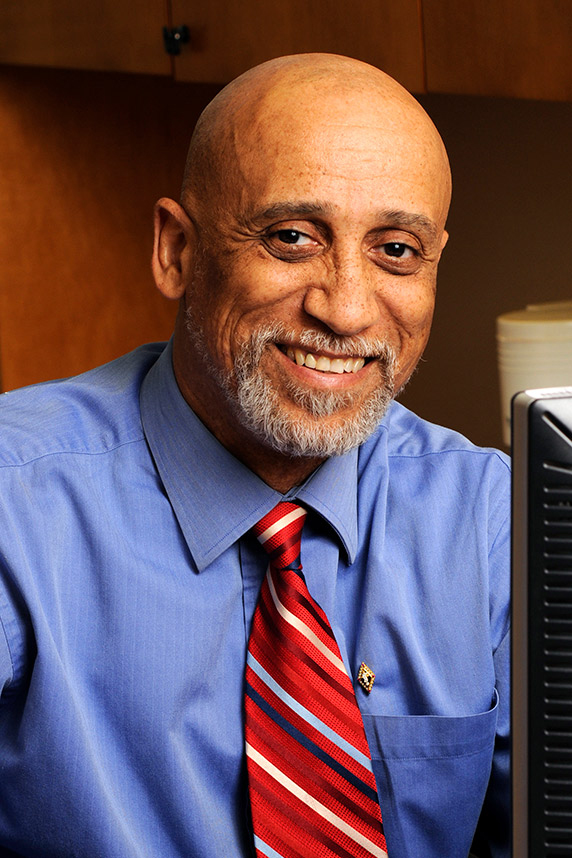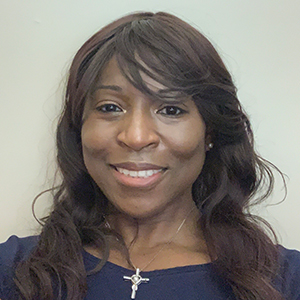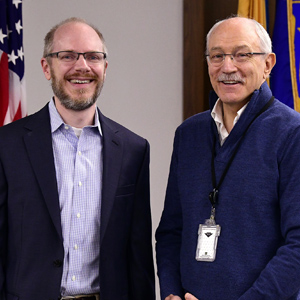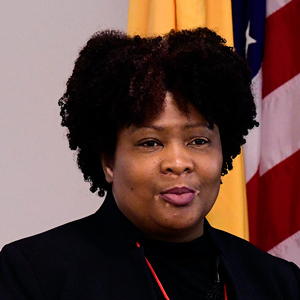At NIEHS, any researcher who has an active grant with at least two years or more remaining can apply for a diversity supplement grant. The grant program was started because the institute is committed to advancing a diverse environmental health sciences workforce.
Gathering these grant recipients through the Diverse Researcher’s Integrated Virtual Engagement Network (DRIVEN!) further supports the effort, according to Kristi Pettibone, Ph.D., of the NIEHS Program Analysis Branch. Their second annual collaborative meeting was held Sept. 7.
Often, the diversity supplement funds are used to recruit and train people who are underrepresented in the environmental health sciences. In fiscal year 2022, 39 people have received the grants, she said, and NIEHS has supported more than 200 people through the program in the last 10 years.
Networking to improve research careers
 “The event provided excellent networking opportunities for trainees, who learned firsthand that NIEHS leadership is committed to supporting their career success,” said Tyson. (Photo courtesy of Steve McCaw / NIEHS)
“The event provided excellent networking opportunities for trainees, who learned firsthand that NIEHS leadership is committed to supporting their career success,” said Tyson. (Photo courtesy of Steve McCaw / NIEHS)Frederick Tyson, Ph.D., of the NIEHS Genes, Environment, and Health Branch, and Heather Henry, Ph.D., of the NIEHS Superfund Research Program, kicked off the event.
“This is a network that has been established at NIEHS to help enhance your research experience,” Tyson explained to participants. “Going beyond the supplemental dollars we are providing to help you with your research, this is an opportunity for you to interact with one another, expand your networks, and perhaps talk about potential collaborations going down the road.”
Three panelists currently or formerly affiliated with NIEHS shared their research career trajectories.
- Ericka Boone, Ph.D., director of the Division of Biomedical Research Workforce in the National Institutes of Health (NIH) Office of Extramural Research.
- Andres Cardenas, Ph.D., assistant professor at Stanford University.
- Jamaji Nwanaji-Enwerem, M.D., Ph.D., physician and adjunct assistant professor at Emory University.
Recalling career challenges, they emphasized that there is not a one-size-fits-all approach to success, and researchers should not be discouraged if their path is non-linear.
“Sometimes, we look at people in certain positions and assume that their careers have been absolutely seamless,” said Boone. “We assume there have been no issues and no problems — that they knew exactly what they wanted to do from the beginning, set out to do it, and then they did it. We look at mentors or our possibility models as if they’re made of Teflon. But the truth is that very few careers are built by a straight path of brick. Careers are built from success, they’re built from failures, and they’re built from pivoting to other opportunities that seem to develop in front of us.”
Sharing resources
NIEHS administrators shared key resources available to the researchers, including these searchable databases.
- NIEHS-Funded Epidemiology Resources Faceted Search Tool(https://tools.niehs.nih.gov/cohorts/).
- NIEHS-supported Publications on Per-and Polyfluoroalkyl Substances(https://portal.niehs.nih.gov/pfas/).
- NIH Climate Change and Human Health Literature Portal.
Participants also learned about NIH Data Sharing Policies and the NIH Center for Scientific Review Assisted Referral Tool, as well as key communities and networks such as NIEHS Partnerships for Environmental Public Health.
Expanding diversity efforts
Trevor Archer, Ph.D., NIEHS deputy director, shared plans to create a new Office for Environmental Health Sciences Diversity in the next year. NIEHS will hire leadership for the office, he said, and that person will be focused on creating additional programming and enhanced funding opportunities for a broad and diverse array of applicants.
“We are going to be promoting DEIA [Diversity, Equity, Inclusion and Accessibility] principles and excellence in environmental health sciences,” he said.
(Lindsay Key is a contract writer for the NIEHS Office of Communications and Public Liaison.)









